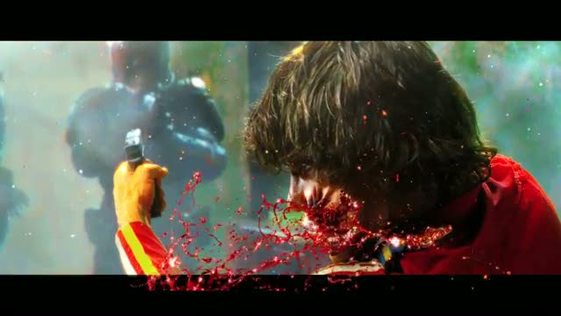 Set in the future, America has become a nuclear wasteland, with only a few overpopulated mega cities remain. Running from Boston to Washington DC lies Mega City One, a massive metropolis that is teetering on the edge of chaos. Incredibly out-manned, the only sense of order lies in the "Judges", officers who are judge, jury and executioner. One of the best, Dredd, responds to a triple homicide in one of the slum districts, only to discover that he has walked directly into the principle manufacturing facility for 'Slo-Mo' a new synthetic drug which is threatening to take over the city. Dredd is a fast-paced, stripped down action extravaganza that understands it's audience. Early on in the film, the viewer is told repeatedly just how bad crime and despair have become in this city, and the film makes sure to not just tell the viewer but show the viewer this barbaric state of society. The film doesn't shy away from the violence, showing the brutality of things, especially through the main villain, Ma-Ma. Ma-Ma is a sadistic character, and Lena Headey does a great job at creating a psychopathic character that is both scary and fun. Unlike so many films, Dredd doesn't try to create an emotional sentimentality within it's story, rather focusing solely on delivering an extremely violent, stripped down narrative that is fast, fluid, and fun. Aesthetically the film does a lot of unique, fun things stylistically -much of which can be attributed to this "slo-mo" drug which lets the user experience reality at 1/100th of the normal speed. These sequences are vivid, stylish and add a nice dimension to the action sequences. Dredd isn't anything profound or unique, but it understands it's audience and delivers the goods. 7.25/10
1 Comment
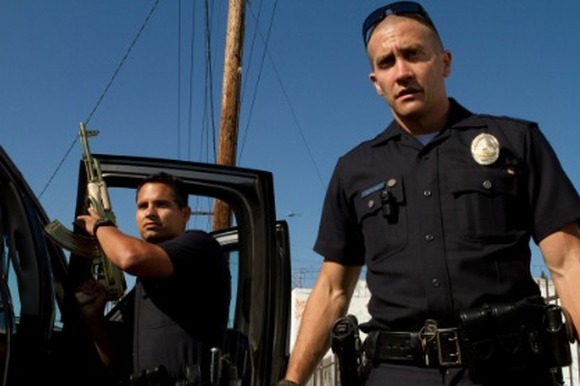 Brian and Mike are partners in the Los Angeles Police Department, the young hot shots of their respective precinct, one of the roughest neighborhoods in South Central. Being instinctual police officers the two find themselves in over their heads when they begin to cause serious trouble for the Mexican Cartel. David Ayer's End Of Watch is a gritty, realistic look into the life and comrade-re of Police officers. The film immerses the viewer into this world, spending lots of time showing the day to day of police officers, understanding the bond which officers share with one and other. Jake Gyllenhaall and Michael Pena are great together, feeling very real and natural, giving the viewer the sense they have been together for years. Aesthetically the film is of the found-footage, shaky cam variety, and while it can be a little disorienting, it perfectly captures the gritty, grounded realism of the world these characters inhabit. When it comes to the action sequences, the aesthetic definitely helps, with the violence, danger and tension feeling incredibly real and present for the viewer. End of Watch is very sentimental towards the men and women who suit up everyday, making sure to show the guilt, second guessing, and hardship which takes its toll on the souls of police officers. That being said, it never comes off as forced or manipulative, instead feeling genuine in it's salute to the police officers of the world. 8.25/10 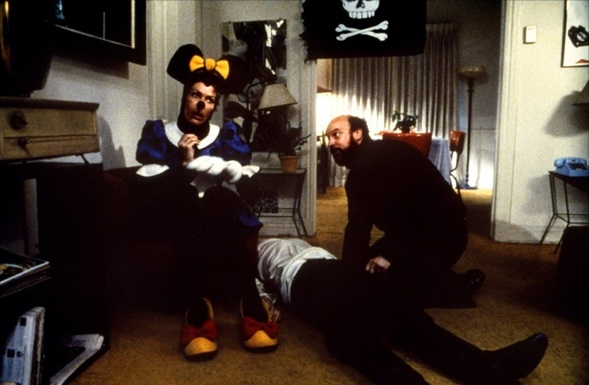 Paul and Mary are a happily married couple living in Hollywood, CA. After Paul gets fired from his job, the two begin to worry about making ends meat and fear their life-long dream of opening a small restaurant is slipping away. In a last ditch effort, the couple decides to put an add out in which Mary poses as a Hooker, luring unexpecting sex-hungry men back to their apartment whereupon Paul kills the client, stealing their valuables and selling the corpse to the night manager at a dog food company. Paul Bartel's Eating Raoul is a perverse, low-key comedic satire which no doubt paved the way for many satires when dealing with sex and violence. In the world of Eating Raoul, pretty much every character outside of our two leads are selfish, perverse individuals only out for themselves and their carnal desires. Satirizing the after effects of the Sexual Revolution, Paul and Mary are the voices of reason who simply see the overabundance of perversion as a way out of their financial woes but when things escalate, these two characters become less innocent, themselves somewhat falling into the perversion of Hollywood. If you can't already tell, Eating Raoul is a pitch-black comedy that is more entertaining then laugh-out-loud funny. It's filmed very similar to an 80's sitcom, with a very low-budget style including tacky production design which adds to the satiric quality while serving the story. While Eating Raoul is entertaining and unique, I found the satirical aspect of the film to be uneven, never really making much of a point. 7/10 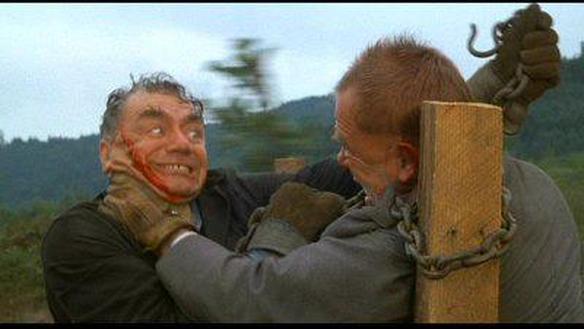 Emperor of the North is a gritty, violent film which takes place during the Great Depression centering around the railroads, where homeless men would routinely lose their lives trying to catch a free ride. Essentially it's Lee Marvin, king of the bums, who is praised for his ability to hop on trains and escape the guards VS. Ernest Borgnine, a sadis tic railroad cop, who has a reputation for brutally beating men to their death for trying to get a free ride on his train. The film's gritty, violent demeanor shows how the depression turned men into animals, just trying to survive. Although Ernest Borgnine may overact a bit in this film, he is a tough, mean mofo. I mean the stare he gives! Bone rattling, and Aldrich takes advantage. spending a lot of time focused on this stone-cold man. The film does have it's odd moments, like some very upbeat music that comes in at times and quite frankly feels completely outta place. There is some other great music though. You can probably tell from the cast alone, this film oozes masculinity and it's an unrelenting look into a specific area which was affected by the Great Depression. 7.75/10 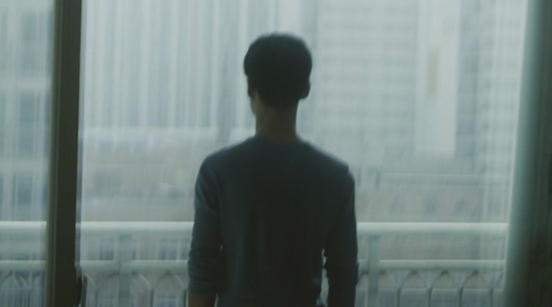 Sung-Hyun Yoon's Bleak Night takes on the complicated subject of teenage suicide in a very straight-forward and genuine way. The film begins with a bereaved father who is simply looking for answers -trying to fully understand why his son would take his own life at such a young age. The narrative of Bleak Night is multi-layered, taking place both in the past and present. As the father seeks out his son's friends in search of answers, the viewer is subjected to flashbacks of Ki-Tai and his friends, familiarizing us with the relationships and slowly and subtlety revealing the increasing sadness of Ki-Tai which ultimately leads to his suicide. Even though the viewer is aware of the outcome from the very beginning, the film is an incredibly affecting portrait, effectively proving that the journey is far more important then the conclusion. Most films tackling the subject of teenage suicide would go with a stereotypical kid who is abused and bullied, pushing him over the edge. This is one of the aspects which makes Bleak Night interesting, in that it shows that Ki-Tai is the opposite, an overconfident teenager whose tough exterior and bullish behavior are simply a shell, hiding the incredible loneliness he feels from living in a family where he doesn't feel loved or appreciated. Aesthetically the film uses lots of hand-held and a low-contrast color palette to create this gritty, somber feel which compliments the story quite well. The final scene of Bleak NIght is perfect, merging memory and the present together as Dong-Yung, Ki-Tai's oldest friend, reflects about his friends life. Even though the friendship between the two of them ended very poorly, it is clear that Dong-Yung misses his friend very much. Bleak Night tells a very difficult subject in a very genuine and honest way, it's deeply affecting and compelling story that shouldn't be missed. 8.5/10 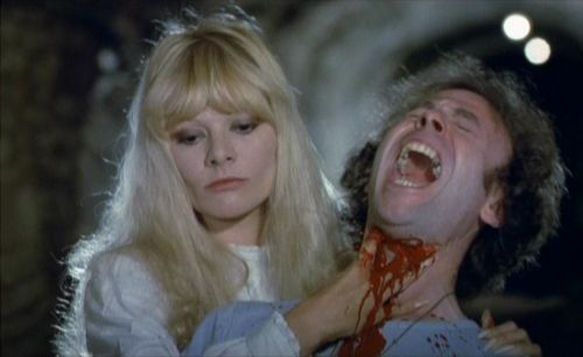 When the grave of Catherine is disturbed by a chemical spill, the young woman, who has been dead for two years, awakens from her tomb with a thirst for blood and a desire to return to her home. Catherine's thirst controls her decision-making but her memories of her old friendship with Helen are the one thing that seemingly break-through this unquenchable blood lust. While The Living Dead Girl is one of Jean Rollin's lesser efforts in terms of atmosphere, the film has got the be one of his most violent films. There are some absolutely grotesque sequences throughout as Catherine quenches her blood lust, primarily by going for the victim's throats, with projectile results. That isn't to say that Living Dead Girl doesn't have more to offer than gore, as I personally found this to be one of Rollins more emotionally affecting films. Catherine is such tragic character and the relationship between both her and Helen is what elevates the film on an emotional level. It's clear that they love each other very much, with Helen doing whatever it takes to help her friend quench her thirst. One of my favorite sequences has to be when Helen brings back the first victim for Catherine. During the murder sequence, Rollin repeatedly inter-cuts back and forth between the actual murder and Helen, who is upstairs, showing the conflicting emotions and terror which Helen feels even though she loves Catherine very much. Towards the end of the film Catherine becomes stronger at fighting the urge to kill, though she knows there is only one way in which she can guarantee she won't become a monster. This leads to a fantastic ending, much like all of Jean Rollins' films, in which the results are beautifully tragic, seeing Catherine and Helen share the same fate. 8/10 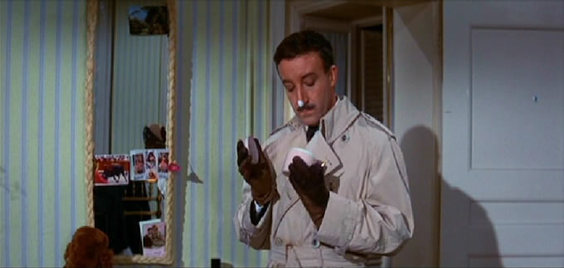 After a murder is committed at an extremely wealthy man's estate, all the evidence points to the housemaid, Maria. The police commissioner is convinced of Maria's guilt, but when bumbling, gloriously inept Inspector Clouseau arrives at the crime scene, he is adamant that Maria is simply being set up by someone else. While Clouseau is one of the most inept individuals ever put on film, a complete klutz and walking accident waiting to happen, he has uncanny instincts. With his own boss not trusting him, Inspector Clouseau attempts to solve the case and clear the name of Maria, a woman who he clearly has an interest in. Blake Edwards' A Shot in the Dark is an extremely well done, hilarious endeavor that dazzles with it's wide range of comedic technique. The basic concept of having a character who is essentially retarded in every way, yet has this unique ability to solve difficult crimes is really a great concept, and Blake Edwards and company make sure it doesn't go to waste. The way the film begins, with an exquisitely photographed sequence in which the camera slowly pans around a large home, following various characters with great precision, ultimately leading up to gunshots off screen, is really masterfully photographed and directed. Shot in the Dark isn't simply a physical comedy, but it relies on anything and everything for its laughs from visual gags to dialogue-driven humor and some great use of comedic repetition. Obviously, Peter Sellers is the absolute star of the film, showcasing his perfect comedic timing and this charming quality that really keeps the film from ever becoming monotonous. From the police commissioner essentially going crazy due to Clouseau's perceived ineptitude, to an Asian man which Clouseau personally hires to keep him own his toes by way of surprise attacks, A Shot in the Dark is just so much fun from start to finish. 8.25/10 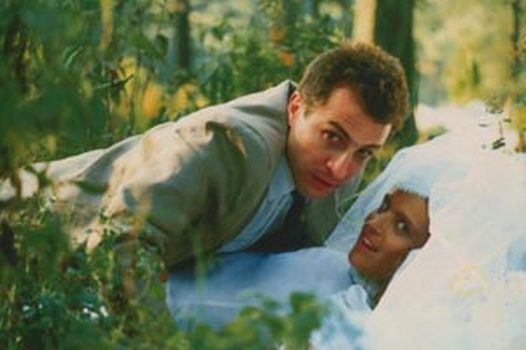 Tomas' job may be as an advertising agent but with the amount of woman he takes to bed, his real profession lies more along the lines of womanizer. The film takes place over the course of a few days where Tom lives his typical life balancing an abnormal amount of woman, one being his boss, while being clearly entranced by his mysterious new neighbor. Alfonso Cuaron's Love in the Time of Hysteria (Solo Con Tu Pareja) starts off very much like a generic Mexican sex comedy until about halfway through when a jaded ex-lover of Tomas' sabotages his AIDS test, leaving Tomas convinced that he has Aids. This is an extremely well crafted film, with gorgeous cinematography that is different, but definitely stands up to any of Cuaron's other films. Extremely clever, the film uses in-title segments to chronicle the events of Tomas, with each giving nice insight into the characters and situations which Tomas finds himself in. Although I am no expert, I would imagine that this was meant to be a satire of Mexican soaps, critiquing the stereotypical nature which Mexican culture seems to embrace. This is most abundant in a dream sequence where Tomas is on a plane, surrounded by mariachi bands, Mexican wrestlers and almost every other Mexican stereotype. While this is a very funny, zany experience what surprised me the most was just how profound and emotionally resonant the film happens to be in the final stretch, with the final in-title segment stating "Love is the cure for those that are sick", really rounding out the film perfectly and giving it some heart. 8/10 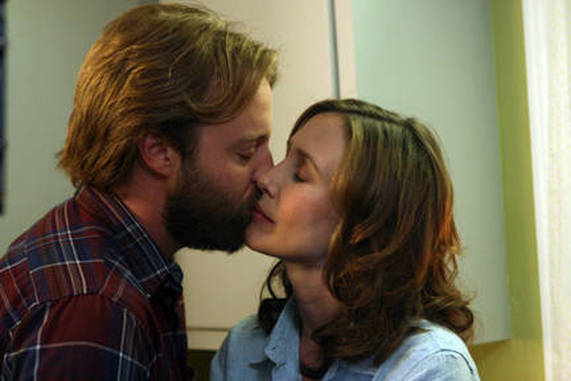 Chronicling the life of Corinne Walker, Vera Farmiga's directorial debut 'Higher Ground' is a story of one woman's struggle with faith. The film begins showing Corinne Walker as a child; we see how she marries extremely young and after a bus accident, which miraculously spares the lives of them and their baby, the two join a very close-knit community of Christians. Time passes but as certain events unfold around Corinne, her faith begins to come into question. Higher Ground is well crafted film that simply relies too heavily on expositional dialogue to relay the indecision which slowly begins to plague Corinne. The film lacks great nuance, with lots of dramatic situations coming off as melodramatic and even in a few instances they feel staged and manipulative, only there for the sake of moving the story forward. Those instances permitting, the film does have moments of strong visual storytelling with a few well executed sequences that even use some surrealist-type devices to relay the emotion and feeling of Corinne. Issues aside, Vera Farmiga does a nice job in the role, and while some of the dramatic situations at times feel manufactured, her performance does not. Higher Ground is a decent film exploring faith, which walks the line between manipulative and genuine throughout its running time. 6.25/10  Set in the world of bike messengers, Premium Rush tells the story of Wilee, a bike messenger in New York City, who lives his life on the edge. On a seemingly routine delivery, Wilee picks up an envelope which he is supposed to deliver to Chinatown. On his way, Wilee soon realizes that the package is a matter of life and death. With a renegade police office, Bobby Monday, on his trail, Wilee must think quickly to figure out why people are after him and what about the package is so important. David Koepp's Premium Rush lives up to it's name, in delivering an extremely fast-paced, fun experience. The film is very stylistic, adding some nice wrinkles which only add to the kinetic fast-paced nature of the film. The film doesn't explain the story to the viewer, rather opting to throw the viewer into this world, letting the viewer learn and react to the story much like it's main character. Structurally it is quite frantic but controlled, jumping around in time, showing various details and having the viewer connect the dots. The biggest problem that Premium Rush has is a love story which falls completely flat, as well as an adversary type bike messenger side character which just felt like a complete waste of time. I feel obliged to mention Michael Shannon's performance as this renegade Police Officer. Shannon seems to elevate every film he is in, and this one is no different. His character is a loose cannon, unhinged, which of course Shannon plays to perfection. Premium Rush is not profound or deep, but it's pulpy fun because of it's unabashed love for bike cultural and if given a chance, it definitely entertains. 6.75/10 |
AuthorLove of all things cinema brought me here. Archives
June 2023
|
 RSS Feed
RSS Feed
